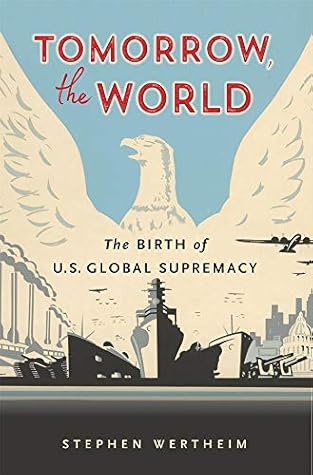Kindle Notes & Highlights
It was against Nazi Germany, prior to Pearl Harbor, that Americans developed the cold war concepts they would apply to the Soviet Union in the late 1940s.
When Churchill proposed to endorse an “effective international organization,” Roosevelt struck the phrase. He told the prime minister that only America and Britain, not some world body, could keep peace in the aftermath of war.165
Within six months, U.S. strategy in the prospective cold war with Nazi Germany advanced from containment to rollback, to use the terminology of the following decade.
The United States, Great Britain, the Soviet Union, and perhaps China—they would police the world and “all other nations save the Big Four should be disarmed,” Roosevelt told the Soviet foreign minister.113
In March he proposed a new world organization to the British for the first time and spoke in Wellesian terms. The Big Four would make “all the more important decisions,” the president said. Once a year or so, the universal assembly would meet, but not to take action. Small countries, the president said, would merely “blow off steam.”117
From 1943 to 1945 Roosevelt convinced his allies to sign up to a new world organization, which neither Churchill nor Stalin, thinking along regionalist lines, had favored.118 Without the initiative of the United States, nothing like the U.N. would have come into being.
Thus interventionists did not merely argue that an internationalism without U.S. supremacy would be undesirable; they rendered the prospect conceptually impossible, articulable only outside the terms of American political discourse.
Although internationalists staged a debate against a phantom enemy, their nondebate proved to be world-historically productive. It settled what Sumner Welles, a few weeks after the D-Day landings, called “the real question before the American people today.” This was whether, after winning the war, “they wish to make the fullest use of the strength which is theirs.”83 This strength, Welles noted, dwarfed that of any other nation in the world. As the United States helped to set up the institutions of postwar international society in the final years of the war, its political class perceived and
...more
Before the ink dried on the U.N. Charter, American officials devised justifications for unilateral action that they or their successors would deploy later.


